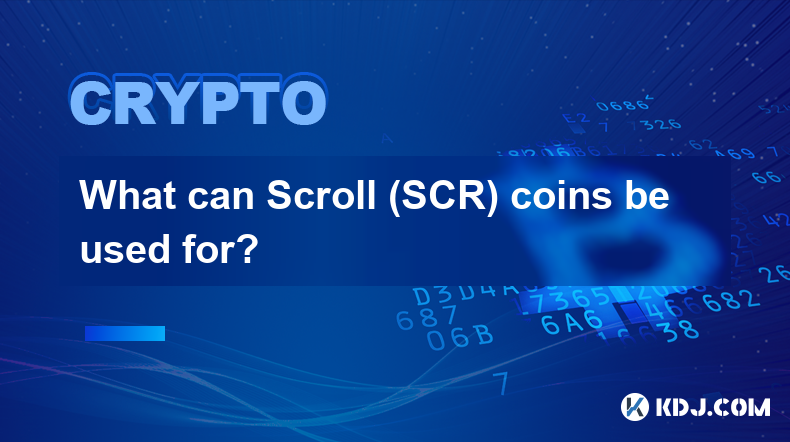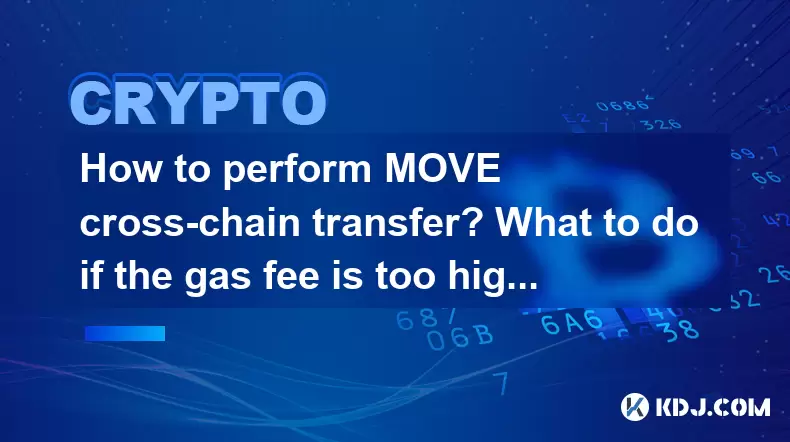-
 Bitcoin
Bitcoin $102,662.5363
4.85% -
 Ethereum
Ethereum $2,193.0670
19.81% -
 Tether USDt
Tether USDt $0.9999
-0.02% -
 XRP
XRP $2.3038
7.50% -
 BNB
BNB $625.3061
3.85% -
 Solana
Solana $162.5747
9.35% -
 USDC
USDC $1.0000
-0.02% -
 Dogecoin
Dogecoin $0.1948
11.09% -
 Cardano
Cardano $0.7630
11.78% -
 TRON
TRON $0.2574
3.22% -
 Sui
Sui $4.0011
17.05% -
 Chainlink
Chainlink $15.7755
11.92% -
 Avalanche
Avalanche $22.1531
11.42% -
 Stellar
Stellar $0.2965
12.70% -
 Shiba Inu
Shiba Inu $0.0...01431
10.58% -
 Bitcoin Cash
Bitcoin Cash $418.8427
3.36% -
 Hedera
Hedera $0.1947
9.85% -
 UNUS SED LEO
UNUS SED LEO $8.8625
0.49% -
 Toncoin
Toncoin $3.1835
5.09% -
 Hyperliquid
Hyperliquid $23.2143
10.04% -
 Litecoin
Litecoin $94.7248
4.08% -
 Polkadot
Polkadot $4.4824
10.46% -
 Monero
Monero $301.2717
6.79% -
 Dai
Dai $1.0001
-0.02% -
 Bitget Token
Bitget Token $4.4883
5.14% -
 Pi
Pi $0.6881
13.78% -
 Ethena USDe
Ethena USDe $1.0000
-0.06% -
 Pepe
Pepe $0.0...01096
30.81% -
 Uniswap
Uniswap $6.0905
23.37% -
 Bittensor
Bittensor $424.6065
12.59%
What can Scroll (SCR) coins be used for?
Scroll (SCR) coins, besides powering transactions and staking, contribute to platform governance, facilitating community involvement in shaping the platform's direction.
Dec 08, 2024 at 11:06 pm

What Can Scroll (SCR) Coins Be Used For?
Scroll (SCR) is a decentralized, open-source blockchain platform designed to support a wide range of applications, including decentralized finance (DeFi), decentralized autonomous organizations (DAOs), and non-fungible tokens (NFTs). SCR coins are the native currency of the Scroll platform and are used for a variety of purposes, including:
1. Transaction Fees
SCR coins are used to pay for transaction fees on the Scroll blockchain. These fees are used to compensate validators for securing the network and processing transactions. The amount of SCR required to pay a transaction fee varies depending on the size and complexity of the transaction.
2. Staking
SCR coins can be staked to earn rewards. Staking involves locking up SCR coins in a smart contract for a period of time. In return for staking their SCR coins, stakers receive rewards in the form of additional SCR coins. Staking helps to secure the Scroll blockchain by increasing the number of validators on the network.
3. Governance
SCR coins are used to participate in the governance of the Scroll platform. SCR coin holders can vote on proposals to change the way the platform operates. These proposals can include changes to the protocol, the fee structure, or the distribution of SCR coins.
4. Payment for Goods and Services
SCR coins can be used to pay for goods and services on the Scroll platform. This includes paying for access to decentralized applications (dApps), purchasing NFTs, and making donations to projects.
5. Investment
SCR coins can be purchased and held as an investment. The value of SCR coins is determined by supply and demand. SCR coins can be bought and sold on cryptocurrency exchanges.
Conclusion
SCR coins are a versatile cryptocurrency that can be used for a variety of purposes. They are used to pay for transaction fees, staking, governance, and purchasing goods and services on the Scroll platform. SCR coins can also be purchased and held as an investment.
Disclaimer:info@kdj.com
The information provided is not trading advice. kdj.com does not assume any responsibility for any investments made based on the information provided in this article. Cryptocurrencies are highly volatile and it is highly recommended that you invest with caution after thorough research!
If you believe that the content used on this website infringes your copyright, please contact us immediately (info@kdj.com) and we will delete it promptly.
- Coinbase's Q1 2025 Earnings Report Disappoints Bullish Expectations in Several Key Areas
- 2025-05-09 09:05:13
- Obol Collective Launches the OBOL Token, Powering the Future of Decentralized Ethereum Staking
- 2025-05-09 09:05:13
- Sun Life Financial Inc. (TSX: SLF) (NYSE: SLF) Declares a Dividend of $0.88 Per Share
- 2025-05-09 09:00:12
- Sun Life Announces Intended Renewal of Normal Course Issuer Bid
- 2025-05-09 09:00:12
- Coinbase (COIN) Q1 CY2025 Highlights: Revenue Falls Short of Expectations, but Sales Rose 24.2% YoY to $2.03B
- 2025-05-09 08:55:12
- BlockDAG (BDAG) Clears Its Third Audit, Prepping for Launch
- 2025-05-09 08:55:12
Related knowledge

How to calculate Ethereum fee after EIP-1559? How to save?
May 09,2025 at 08:01am
The introduction of EIP-1559 in August 2021 brought significant changes to the Ethereum network's fee structure, revolutionizing how users interact with transaction costs. This article will delve into the specifics of how to calculate Ethereum fees post-EIP-1559 and offer strategies to save on these fees. Understanding EIP-1559 and its ComponentsEIP-155...

Is Ethereum smart contract call fee high? How to optimize costs?
May 08,2025 at 09:35am
Is Ethereum Smart Contract Call Fee High? How to Optimize Costs? The world of Ethereum smart contracts has revolutionized the way we think about decentralized applications and blockchain technology. However, one of the most frequently discussed topics within this realm is the cost associated with executing smart contract calls. In this article, we will ...

Is Ethereum Layer2 fee low? How to use it cheaper?
May 08,2025 at 03:56am
The question of whether Ethereum Layer 2 solutions offer lower fees and how to use them more economically is a topic of great interest within the cryptocurrency community. Ethereum's Layer 2 solutions have been developed to address the high transaction fees and scalability issues associated with the main Ethereum network. In this article, we will delve ...

How to calculate Ethereum network fee? How to reduce transaction costs?
May 08,2025 at 02:15am
Understanding and managing Ethereum network fees is crucial for anyone involved in transactions on the Ethereum blockchain. The network fee, also known as gas fee, is the amount of Ether (ETH) required to successfully conduct a transaction or execute a smart contract on the Ethereum network. Calculating these fees and finding ways to reduce them can sig...

What is Ethereum Gas Fee? How to optimize Gas Fee to save costs?
May 08,2025 at 03:43am
Ethereum gas fees are a crucial aspect of interacting with the Ethereum blockchain. Understanding and optimizing these fees can significantly impact the cost-effectiveness of transactions and smart contract interactions. In this article, we will delve into what Ethereum gas fees are, how they are calculated, and provide detailed strategies for optimizin...

How to perform MOVE cross-chain transfer? What to do if the gas fee is too high?
May 07,2025 at 08:03pm
Introduction to MOVE Cross-Chain TransferCross-chain transfers have become an essential part of the cryptocurrency ecosystem, allowing users to move assets between different blockchain networks. One of the popular protocols for achieving this is the MOVE cross-chain transfer. This article will guide you through the process of performing a MOVE cross-cha...

How to calculate Ethereum fee after EIP-1559? How to save?
May 09,2025 at 08:01am
The introduction of EIP-1559 in August 2021 brought significant changes to the Ethereum network's fee structure, revolutionizing how users interact with transaction costs. This article will delve into the specifics of how to calculate Ethereum fees post-EIP-1559 and offer strategies to save on these fees. Understanding EIP-1559 and its ComponentsEIP-155...

Is Ethereum smart contract call fee high? How to optimize costs?
May 08,2025 at 09:35am
Is Ethereum Smart Contract Call Fee High? How to Optimize Costs? The world of Ethereum smart contracts has revolutionized the way we think about decentralized applications and blockchain technology. However, one of the most frequently discussed topics within this realm is the cost associated with executing smart contract calls. In this article, we will ...

Is Ethereum Layer2 fee low? How to use it cheaper?
May 08,2025 at 03:56am
The question of whether Ethereum Layer 2 solutions offer lower fees and how to use them more economically is a topic of great interest within the cryptocurrency community. Ethereum's Layer 2 solutions have been developed to address the high transaction fees and scalability issues associated with the main Ethereum network. In this article, we will delve ...

How to calculate Ethereum network fee? How to reduce transaction costs?
May 08,2025 at 02:15am
Understanding and managing Ethereum network fees is crucial for anyone involved in transactions on the Ethereum blockchain. The network fee, also known as gas fee, is the amount of Ether (ETH) required to successfully conduct a transaction or execute a smart contract on the Ethereum network. Calculating these fees and finding ways to reduce them can sig...

What is Ethereum Gas Fee? How to optimize Gas Fee to save costs?
May 08,2025 at 03:43am
Ethereum gas fees are a crucial aspect of interacting with the Ethereum blockchain. Understanding and optimizing these fees can significantly impact the cost-effectiveness of transactions and smart contract interactions. In this article, we will delve into what Ethereum gas fees are, how they are calculated, and provide detailed strategies for optimizin...

How to perform MOVE cross-chain transfer? What to do if the gas fee is too high?
May 07,2025 at 08:03pm
Introduction to MOVE Cross-Chain TransferCross-chain transfers have become an essential part of the cryptocurrency ecosystem, allowing users to move assets between different blockchain networks. One of the popular protocols for achieving this is the MOVE cross-chain transfer. This article will guide you through the process of performing a MOVE cross-cha...
See all articles






















































































